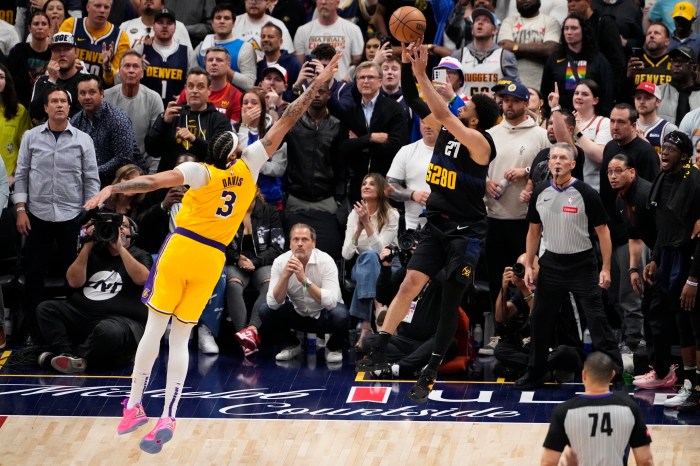Author Nathan Englander argues that fiction is truer than truth. Then it, too, must have consequences.
In his compelling short story collection “What We Talk About When We Talk About Anne Frank,” characters make controversial judgments that often defy social, moral and legal contracts. Whether in taking control of one’s own life or taking justice is one’s own hands, their loaded choices ask us to see just how gray our world is. Englander’s bittersweet tales of forgiving — and not forgiving — but never forgetting open a dialogue. We start one with him.
There’s something so raw about your stories that seemingly only first-hand knowledge can invoke. What inspired “Free Fruit for Young Widows” and Sister Hills,” both which take place far from Brooklyn [where you live]?
My aesthetic is really simple — my obligation is to the story. I don’t sound shy but what I am is private and distant worlds let me be as intimate and raw as I need to be. I was at a conference with the Israeli writer Etgar Keret and he told me a personal story about his father who was a Warsaw Ghetto survivor. I asked him, “Can I address your story as a story?” And he said … “take it, it’s yours.” I wanted to do it justice [in “Free Fruit for Young Widows”]. And “Sister Hills”? I’m always thinking about Israel. I wanted to write the whole history of the West Bank compressed into a short story. More than anything I’ve ever written, it was so overwhelming that I didn’t even know what I had. You have to have respect for the work you’re doing. It’s not about polemics or what I feel about politics, it’s about obligations to the story.
Is it daunting to approach writing such polemic themes in the short form, which is relatively restrictive in scope?
I have a play opening in the fall in New York. The play is so suffocating. You’re limited by space; you’re limited by time…. Even dialogue — you have to learn how to make it live in this other world. I felt suffocated until I understood that what you’re doing is framing. Setting that limit allows a person to execute. When you put something out into the world with your name of it, you should want to stand by it for the rest of your life. So I don’t understand people wanting to rush their work. It should go out in the form that it needs to be however long that takes. I know it’s torturous at the same time, but writing is the joyful part, even if it causes you to bang your head against the wall.
A common thread in the stories is the boiling point: What causes us to break down, to expose our repressed emotions? Do you experience these points in your writing process?
“Sister Hills” was the last story in the book and the pressure was on. I was sitting there all day Friday, all day Saturday, all day Sunday. Then it was Monday night and I’d put in one of those 12-hour days where you’re just writing up to a new part, then not engaging and then you just know. I was suddenly writing the rest of the story. That sums up the pivot process. I built the whole world, so there’s nobody else who could know how it works but me. How can I know on Monday what I didn’t know on Friday? Things are cooking. Yes, those pivot points are built into the work, but I think they’re built into life.
Even at their most brutal, there’s an underlying tenderness in your stories. Do you think there’s a limit to compassion?
[Writing fiction] is a moral act. How can you write a story that’s universal if you don’t understand what good and what evil means? I’m haunted that there’s no black-and-white world and that there’s so much injustice. I always get in trouble when people play that game, “can you imagine that”? Because I can imagine anything. The point of writing is exploring these questions. I would hope there’s no limit to compassion, but if you want me to explore otherwise, I will list scenarios. It’s case-by-case, moment-by-moment.



















